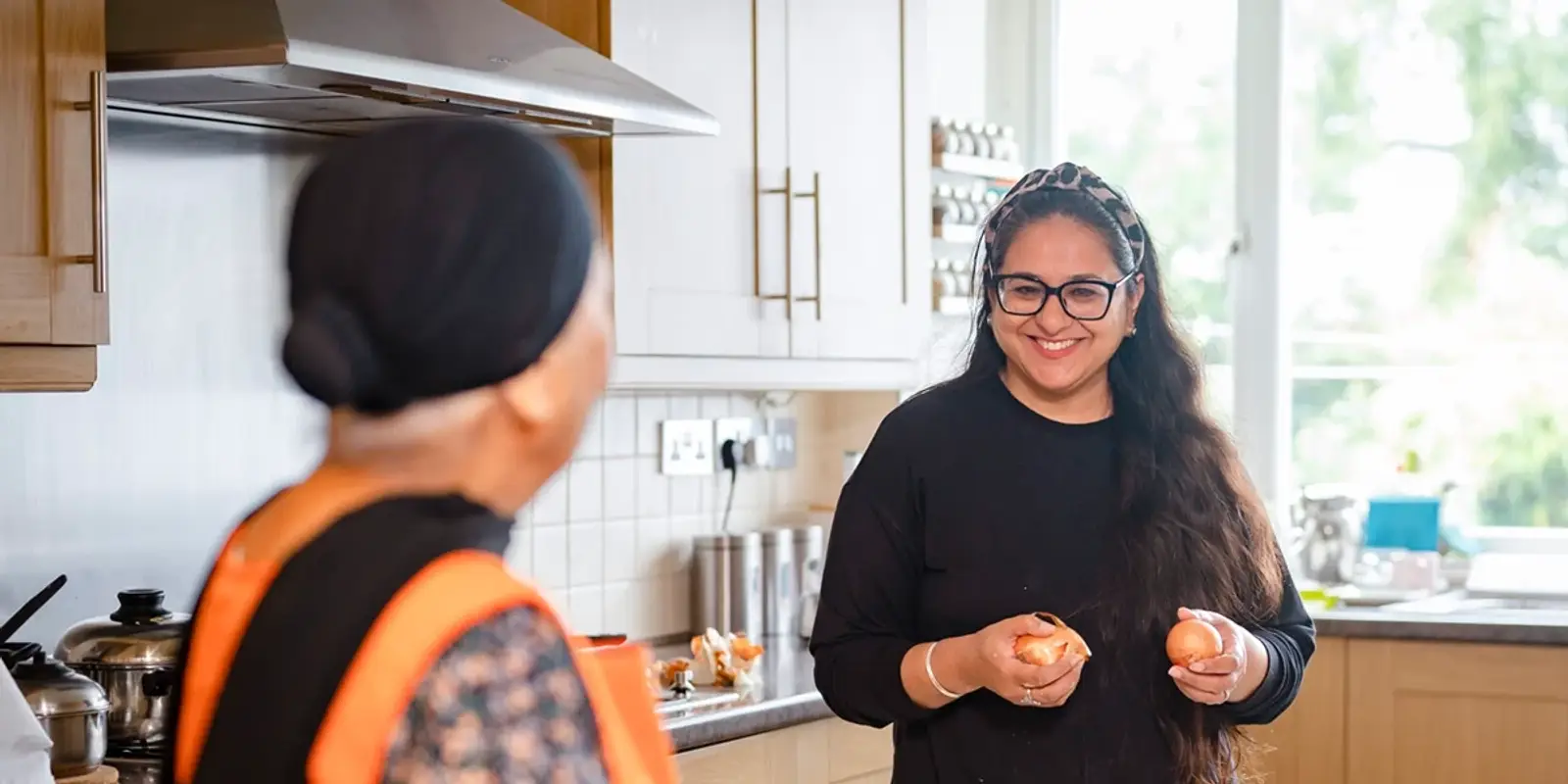Live-in care tailored to your loved one's needs
Find a trusted live-in carer to support your loved one at home, day and night, just like Kenn and Nicole did for their parents.
Find a carerCall us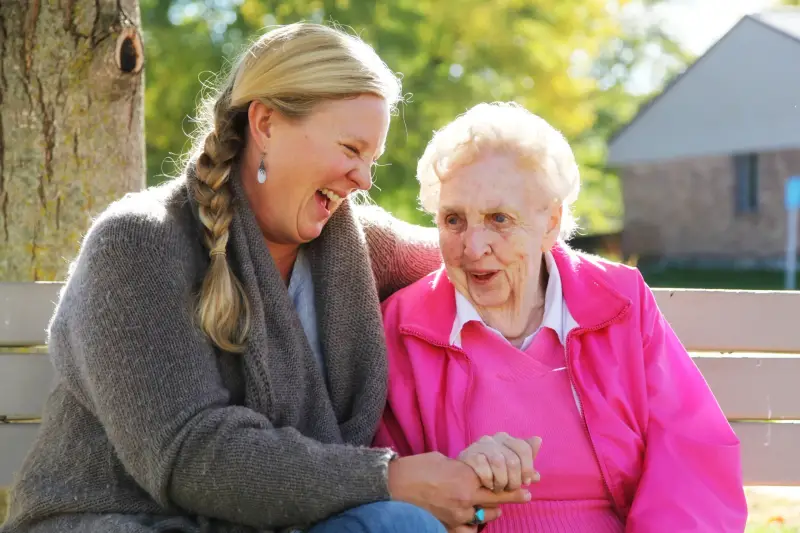
Choose your carer
Start within 24 hours
Transparent pricing
Personalised support
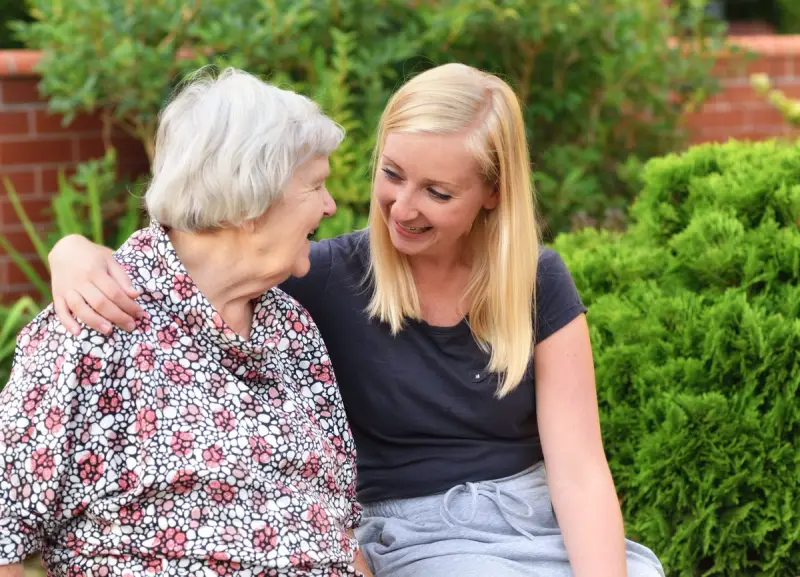
What is live-in care?
Live-in care is a type of home care where a dedicated carer moves into the home to provide 24-hour support. It’s a personalised alternative to a care home, helping with daily tasks like washing, dressing, taking medication, cooking, and housekeeping – all in the comfort of your loved one's home.
Live-in carers also provide companionship, emotional reassurance and household support. From supporting mobility and running errands to being there for a friendly chat, live-in care means someone is always on hand.
Because care is tailored to the elderly’s needs and preferences, many families choose live-in care to stay independent, maintain routines, and enjoy one-to-one support in familiar surroundings.
What are the benefits of live-in care?
Live-in care offers a safe and flexible alternative to residential care, allowing people to receive full-time support in the comfort of their own home. From practical help with everyday tasks to emotional support and companionship, there are many reasons families choose this type of care.
When is live-in care suitable?
Live-in care is ideal for individuals with mid to high-level care needs, especially when the level of care required surpasses what visiting care can provide. Here are some common situations where live-in care is the best option:
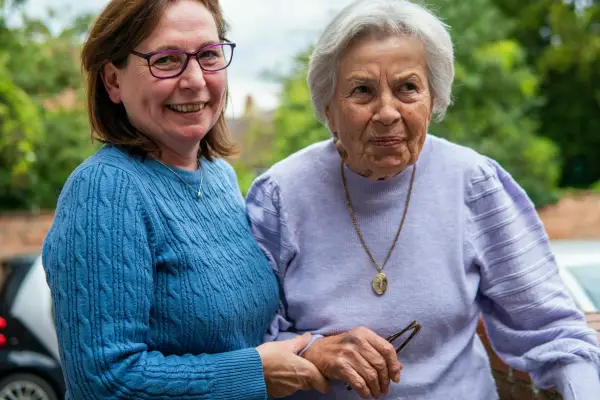
When visiting care is no longer sufficient
As care needs increase, a few hours of support may no longer be enough. For those at risk of falls, wandering, or struggling with medication, live-in care offers constant reassurance and safety, providing peace of mind for families too.

When adapting to a care home is difficult
Some people find residential care overwhelming or uncomfortable. If your loved one values privacy, familiar routines, and flexibility, live-in care can be a better fit.
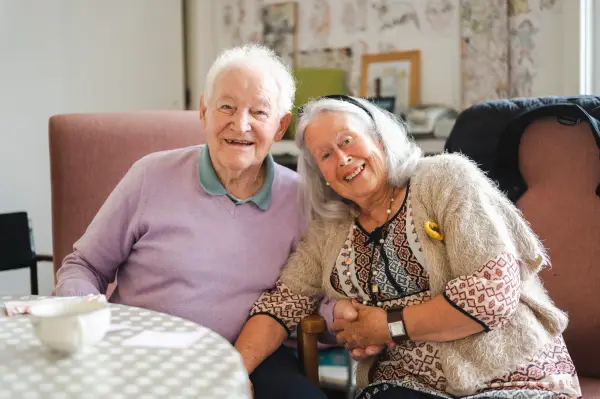
When couples with different needs want to stay together
Live-in care helps couples remain together even when one partner needs extra support. A dedicated carer provides personalised help for the person requiring care while easing the pressure on their partner.

When a person is discharged from hospital
Live-in care enables a safe hospital discharge and supports rehabilitation in familiar surroundings. With one-to-one help from a trained carer, your loved one can regain strength and confidence more comfortably and quickly.

When an elderly person has limited support nearby
For older adults living alone or with distant family, live-in care provides both assistance and companionship. A carer offers help with daily tasks, monitors wellbeing, and keeps families informed.
Live-in care vs care home: Kenn and Nicole’s story
Live-in care helped Kenn and Nicole’s parents remain safe and happy in familiar surroundings, with one dedicated carer providing consistent support and companionship. In this video, they share how it gave their whole family confidence, comfort, and peace of mind.
Types of live-in care we offer
At Elder, we offer the following types of live-in care:

Who are our live-in carers?
At Elder, we understand it can be difficult to let someone you don’t know into your home, which is why every carer on our platform must pass a suitability screening before they can connect to families. This includes a background check and character assessment. Carers are also asked to provide relevant documentation and verifiable professional references.
Only 2% of applicants are successful. It’s one of the reasons why 90% of our customers find their ideal carer the first time.
Want to learn more about some of the self-employed carers on our platform? Read their stories.

Find your ideal carer
We have connected over 5000 families to carers so far.

How much is live-in care?
Live-in care with Elder starts from £1,150 per week (£165 per day).
As with any type of care, there are funding options available. If you haven’t already, it’s a good idea to contact your local authority and request a care needs assessment. This will determine the level of care required and whether you’re eligible for financial support.
Even if you don’t qualify for local authority funding, you might still be able to access help through benevolent funds or charities. Local carers’ groups, your GP, social worker, or health visitor can point you in the direction of available support.
For more information, read our guide to the costs of live-in care.
What to consider before arranging live-in care

Understanding the process
Arranging live-in care involves several options, including private arrangements, using a live-in care provider, or an introductory agency. The process should always prioritise the best interests and personal circumstances of your loved one.
Before arranging live-in care, start with a care needs assessment from your loved one’s local authority. This helps define what support they need and what types of care may suit them best.
If you prefer live-in care, mention it early in the assessment. Depending on eligibility, funding may come through direct payments (to manage care independently) or NHS Continuing Healthcare (for complex medical needs).

Choosing a live-in care option
You can arrange care in three main ways:
1. Private arrangement
- Pros: Full control and freedom to choose a familiar carer.
- Cons: You become the legal employer – responsible for contracts, pay, tax, and insurance.
2. Fully-managed provider
- Pros: CQC-regulated, all employment and legal matters handled for you.
- Cons: Higher cost and less control over who provides the care.
3. Introductory agency like Elder
- Pros: Fast and flexible option. Carers are pre-vetted and matched to your loved one’s needs and personality.
- Considerations: Carers are self-employed, and you play a more active role in managing them.
How do I arrange live-in care with Elder?
Share your care request
Tell us your care requirements using our request form, including the type of care you’re looking for, any specialist skills you need, and what daily life looks like.
Select your carer
You’ll start receiving profiles of suitable self-employed carers within 24 hours. Chat to them online or arrange a phone or video call, before choosing who you like best.
Manage care
Once your agreement with your carer begins, use your MyElder account to chat with them and the Elder team, manage your schedule and care information, and find respite cover if you need it.
Why choose Elder for live-in care
Choose the carer
We shortlist carers based on your loved one's unique requirements and let you speak with them to choose the one you like best.
Quality support
Our support and medical teams make organising the right care easy and are available for you 7 days a week.
Easy to try
14-day trial period. No deposits or joining fees. No bank holiday surcharges. Just a competitive price unlocked by our great technology.
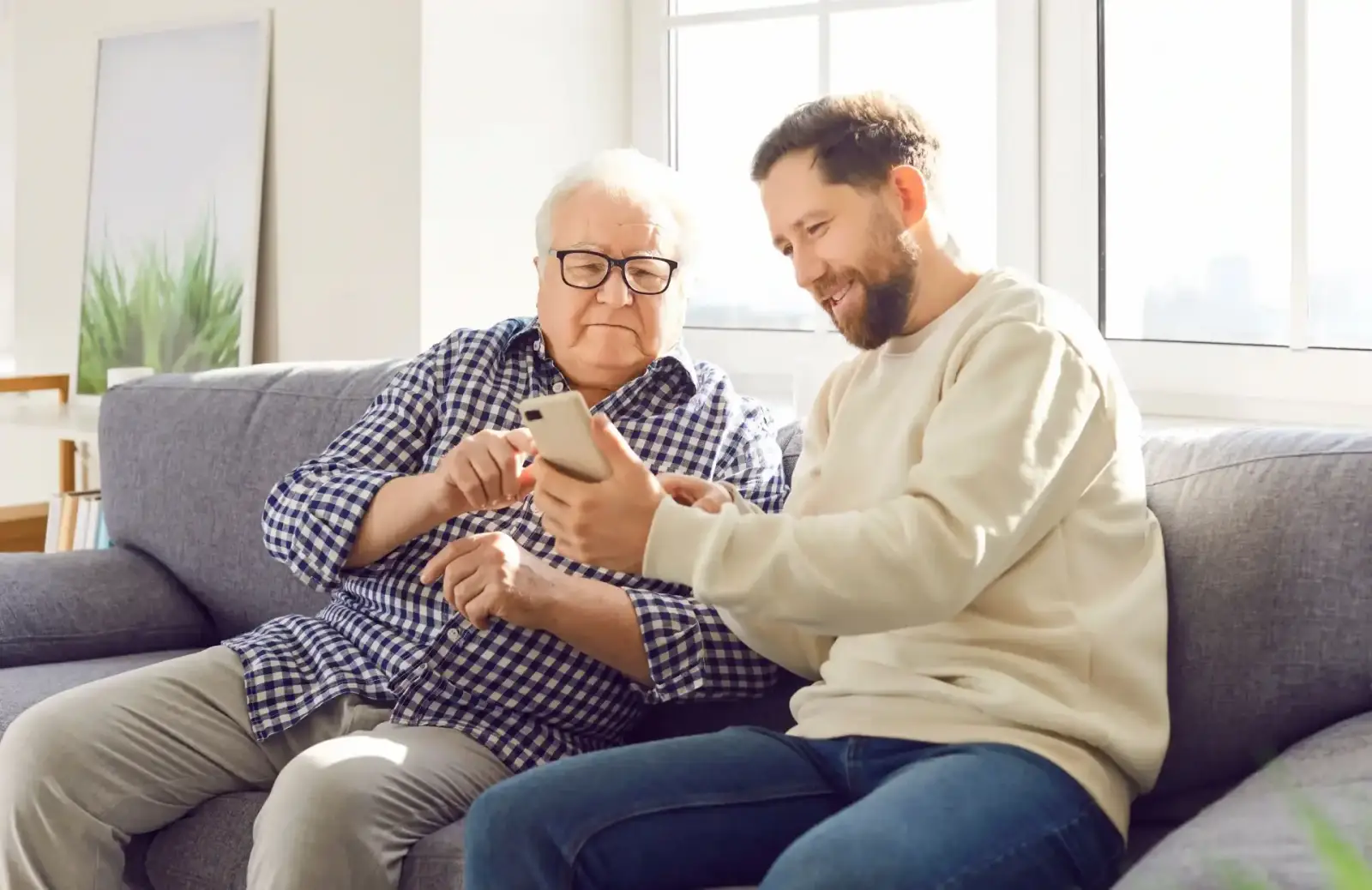
Customer stories: Finding trusted live-in care
Finding the right care can feel overwhelming, but hearing how others made the decision can help. Explore real stories of families who found trusted support through live-in care.

Live-in care vs care home: Kenn and Nicole’s story
Kenn and Nicole share how live-in care allowed their parents to stay safe and happy in their own home, avoiding the stress of a care home.
Read Kenn and Nicole's story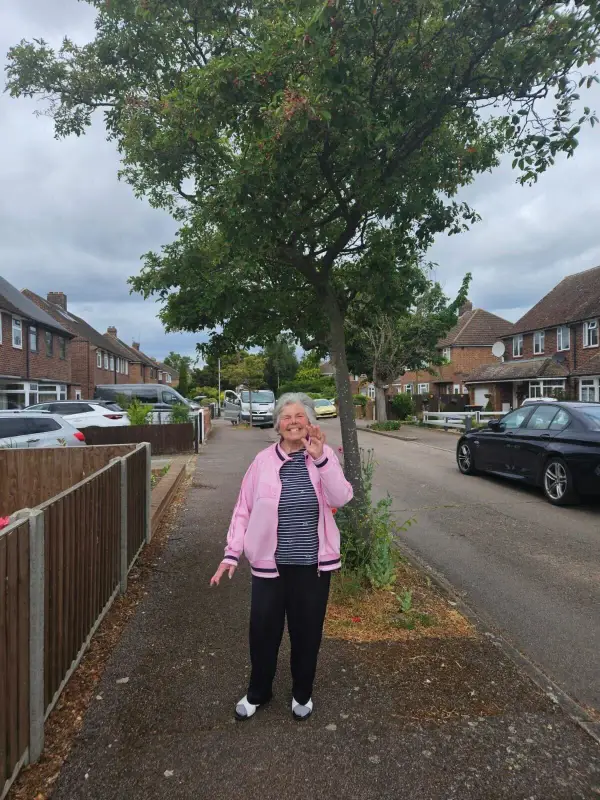
How home care gave Sharon peace of mind
Sharon shares how home care supported her mum Sheila and gave her peace of mind knowing her mum was cared for and never alone.
Read Sharon's story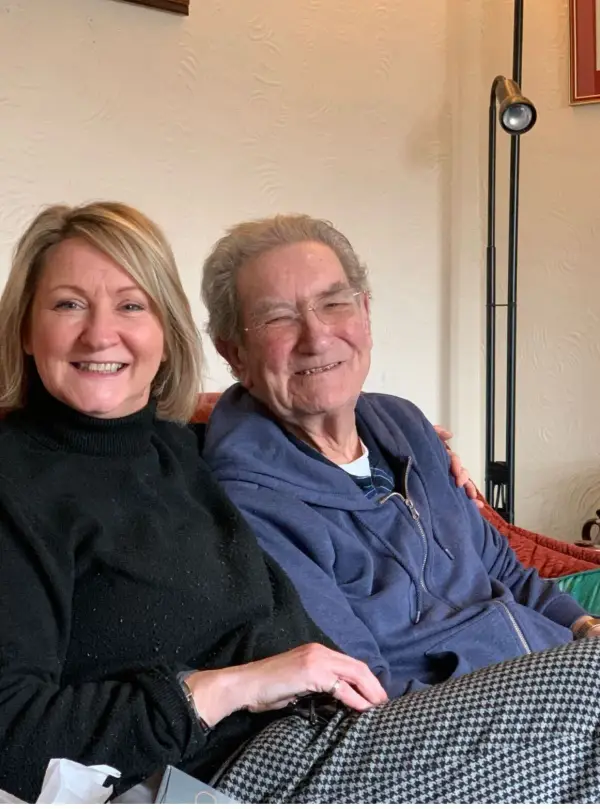
How live-in care allowed Hayley's dad to remain at home
Hayley shares how live-in care gave her dad tailored support, enabling him to regain his independence after being discharged from hospital.
Read Hayley's story
More customer stories about live-in care
Explore more real stories from families who’ve chosen Elder’s live-in care – and discover how personalised support at home can make all the difference.
FAQs about live-in care
Still have questions?
0333 920 3648Live-in care works by having a dedicated carer move into your loved one’s home to provide one-to-one support, day and night.
Live-in carers can assist with daily tasks, personal care and companionship, helping your loved one stay safe, comfortable and independent in their own home.
Live-in carers can support with:
- Household tasks (cleaning, laundry, cooking, errands)
- Personal care (washing, dressing, toileting, mobility support)
- Companionship and social support
- Medication reminders
- Night-time support
- Looking after pets and helping with outings.
Live-in carers can’t support with:
- Ventilation or oxygen support (e.g. CPAP or BiPAP)
- Specialist drug administration
- Stoma care
- PEG care
- Wound care
To learn more, read our guide on what live-in carers can do.
It’s simple to get started. Once you’ve created your MyElder account, you’ll be asked to complete some quick clinical suitability questions and submit a ‘Care Request’. This usually takes less than 10 minutes and helps us understand your care needs to match you with the right live-in carer.
You’ll be asked about:
- The name, age, and location of the person needing care
- Any medical conditions
- Mobility levels
- Hobbies and interests
- Discrimination risk.
Using your answers, our ElderMatch technology shortlists suitable self-employed carers. You’ll typically receive profiles within 24 hours.
Each carer profile includes details about their experience, background, and feedback from other families. You’ll also see a short introductory video to help you get a feel for their personality and approach.
You can:
- Invite other family members or decision-makers to your MyElder account
- Chat directly with carers through the platform
- Arrange phone or video calls to get to know them better.
Not sure what to ask a potential carer? We’ve put together some helpful questions. Once you’ve found the right carer for your needs, simply click ‘Accept’ on their profile to move forward. For more advice, read our guide to how to choose a live-in carer.
We know how important it is to feel confident in the carer supporting your loved one. That’s why every self-employed carer on the Elder platform must pass a suitability screening before joining. This includes:
- Professional care experience – Carers must have previous experience in a professional setting, such as a private home, care home, or healthcare facility. We don’t accept personal or family-only care experience.
- Strong communication skills – A good level of written and spoken English is essential.
- Proof of identity – Carers must provide valid photo ID and have the Right to Work in the UK.
- Background checks – All carers must be eligible to pass an enhanced DBS check (England and Wales).
- References – Carers are required to supply at least two verifiable professional references.
- Screening assessments – Each carer completes a series of situational judgment and character assessments to help us understand their approach to care.
Yes, you can arrange care with more than one self-employed carer through Elder. For example, if you need separate carers for daytime and nighttime support, simply submit a separate Care Request for each arrangement.
Be sure to clearly outline the specific needs each carer will be supporting with, so we can match you with the most suitable individuals for each role.
Thanks to our nationwide network of self-employed carers, we’re often able to arrange live-in care within 24 hours. In urgent cases, we’ve even matched families with a suitable carer on the same day.
Yes, absolutely. If you or your loved one has a preference for a male or female carer, just let us know when submitting your care request.
Yes. All self-employed carers on our platform are required to have a good standard of written and spoken English to ensure clear communication and high-quality care.
If you’d prefer a carer who also speaks another language, just let us know – we’ll do our best to match you with someone who meets your needs.
Yes. To help the live-in carer settle in and feel comfortable, you’ll need to provide:
- A private room – Ideally a bedroom that isn’t used by other family members or as a walkthrough. If a bedroom isn’t available, a spare reception room or study can be adapted, as long as it’s a private and quiet space.
- Access to a bathroom – The carer doesn’t need their own bathroom, but clean, functional facilities are essential. If the bathroom is shared, there should be space for the carer to store personal toiletries.
- WiFi access – A reliable internet connection helps carers stay in touch with Elder, access care resources, and communicate with family, especially important in rural areas with poor phone signals.
Live-in carers usually prepare and share meals with the person they’re supporting, so there’s no need for separate dining arrangements. We recommend budgeting around £40 per week to cover the cost of the carer’s food. If you prefer, this can be included in your weekly payments through Elder.
Some carers may have specific dietary requirements and may choose to buy their own food instead. We suggest discussing food preferences and arrangements directly with your chosen carer to ensure a setup that works for everyone.
Yes, live-in care can be especially beneficial for individuals living with dementia. Staying in familiar surroundings helps reduce confusion and distress. Carers can provide dedicated support tailored to your loved one’s needs and routines. Read our guide to live-in dementia care for more information.
If the match isn’t right, we will offer a replacement carer at no extra cost. Simply give us a call and we’ll work quickly to present you with new carer matches, usually within 24 hours.
Absolutely. You can ask about their motivation, training, past experience, approach to emergencies, and how they build relationships with those they care for.
Explore other care options
At Elder, we provide a full range of home care services to suit every need. If your loved one requires occasional support or your primary carer needs a temporary break, these options may be more suitable:
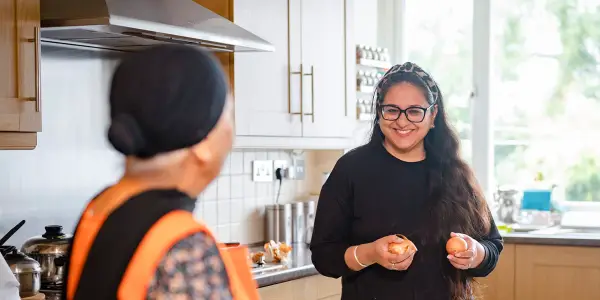
Respite care
Temporary 24-hour support
- A carer moves in for a few days to provide 24-hour support
- Suitable for covering a regular carer’s break or short-term care needs
- Minimum duration of 3 days
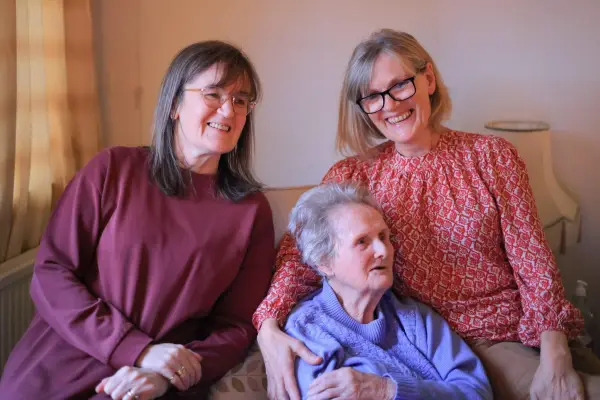
Visiting care
Flexible home visits
- Book as many hours as you need for help in the comfort of your home
- Support with everyday tasks like grooming, walks, cooking, etc.
- From as little as 1 hour per week
Become a part of the Elder community
Subscribe to Elder emails for expert care and later life advice direct to your inbox.
By submitting this email address you are happy for Elder to store and use your personal information to contact you about their services and other related information they think might be of interest to you. Privacy Policy










